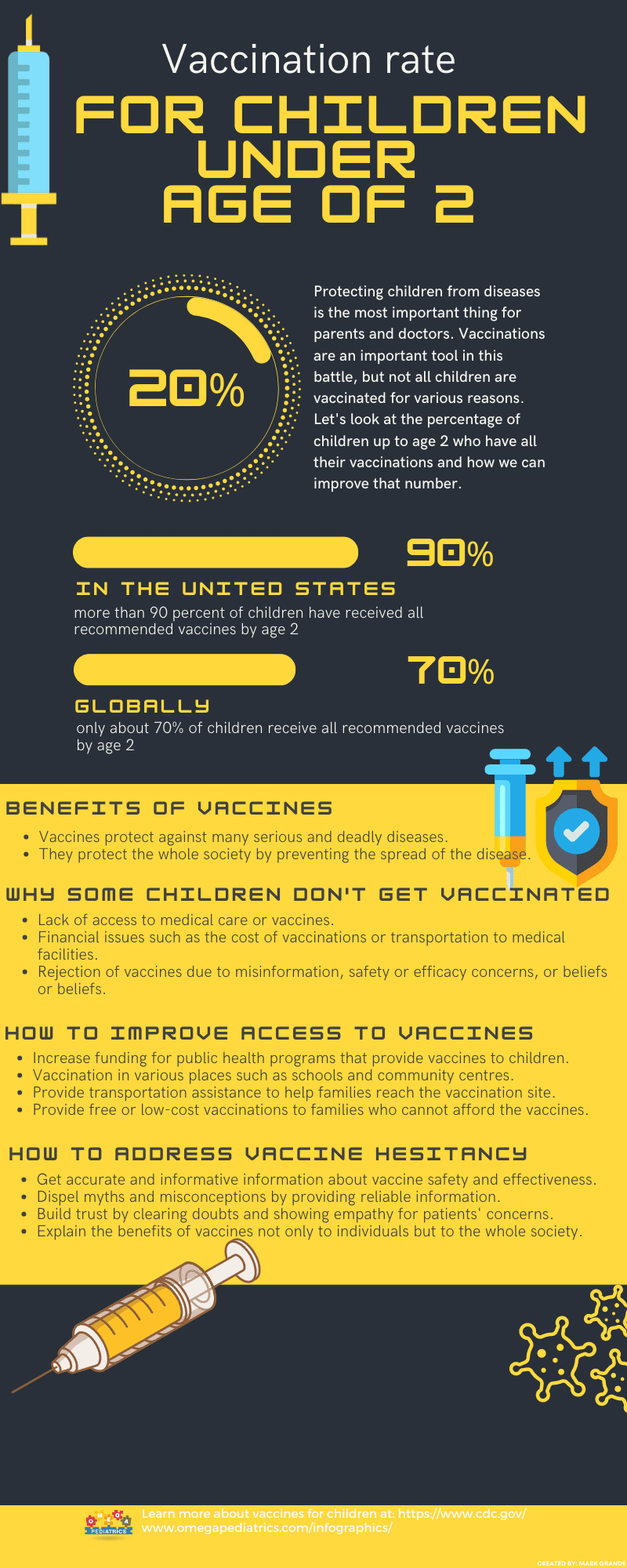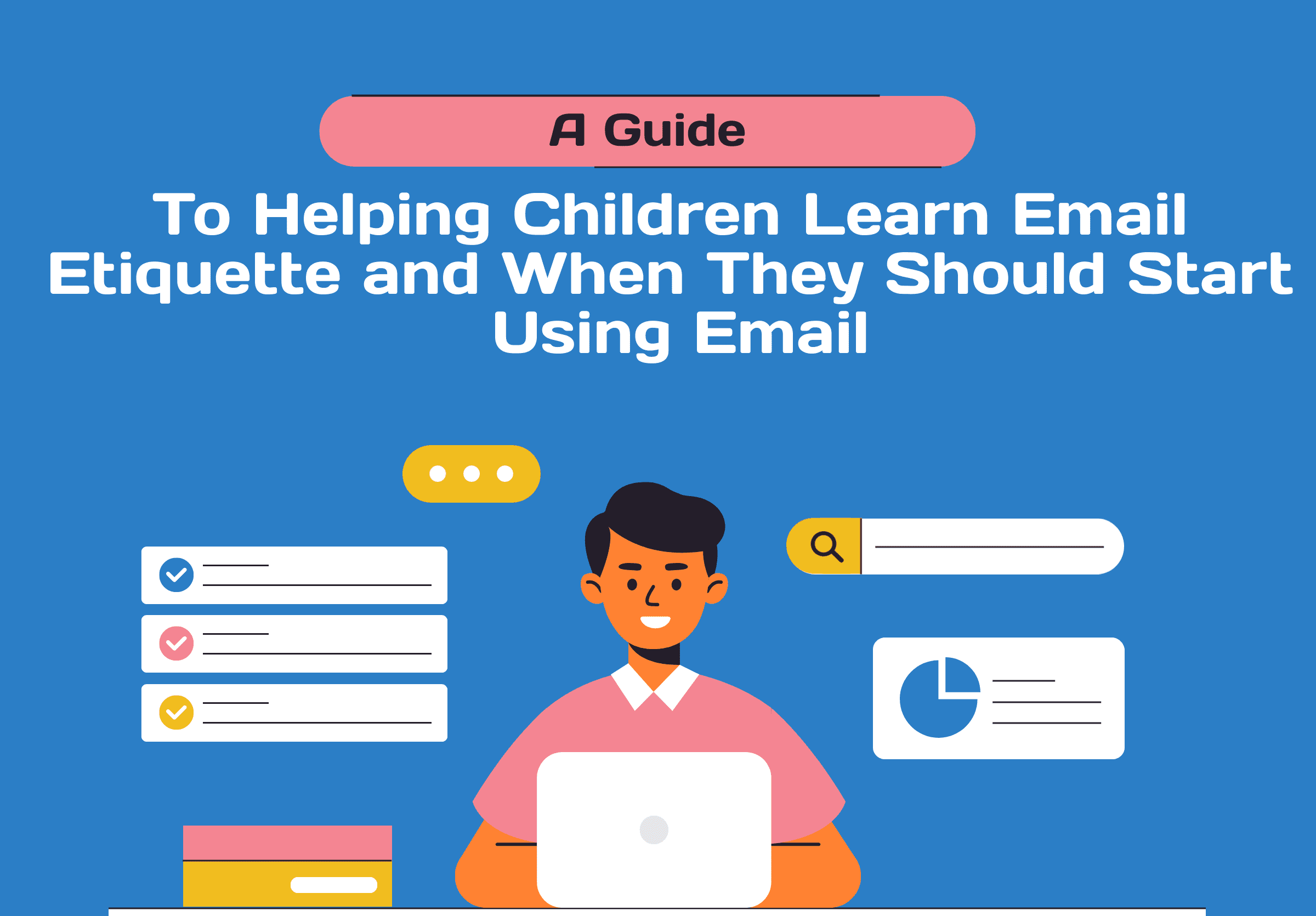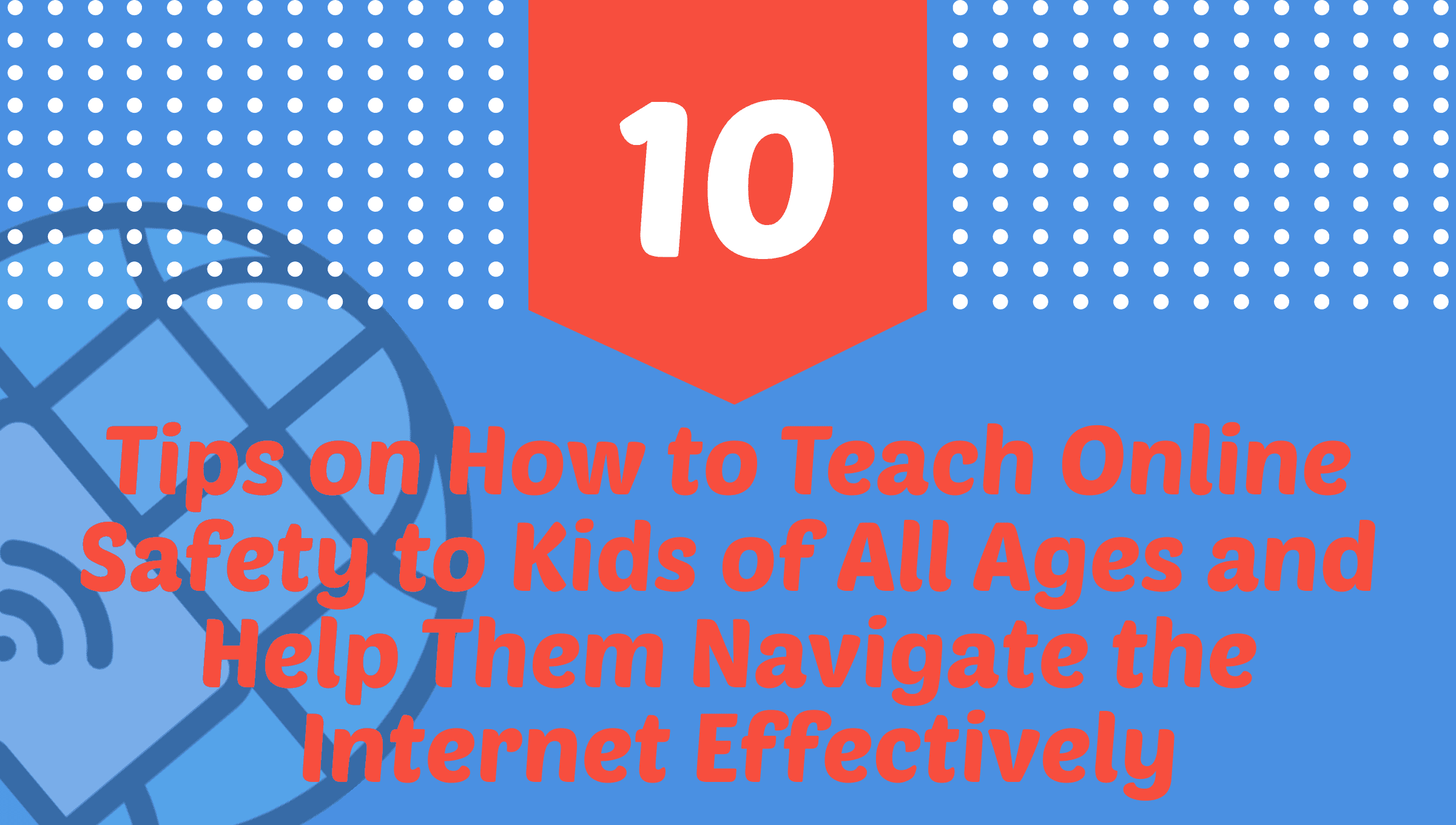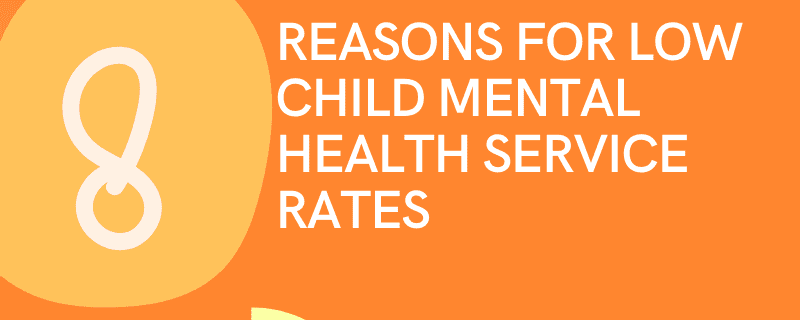 Protecting children from diseases is the most important thing for parents and doctors. Vaccinations are an important tool in this battle, but not all children are vaccinated for various reasons. Let’s look at the percentage of children up to age 2 who have all their vaccinations and how we can improve that number.
Protecting children from diseases is the most important thing for parents and doctors. Vaccinations are an important tool in this battle, but not all children are vaccinated for various reasons. Let’s look at the percentage of children up to age 2 who have all their vaccinations and how we can improve that number.
In the United States more than 90 percent of children have received all recommended vaccines by age 2.
Globally only about 70% of children receive all recommended vaccines by age 2.
It is crucial to bridge the gap between vaccination rates among children in the United States and globally, as their health and well-being depend on it. Increasing awareness about the importance of vaccinations and addressing the barriers that hinder access to immunization services can contribute to improving the percentage of children who receive all their recommended vaccines by age 2. By prioritizing comprehensive education and implementing targeted strategies, we can strive towards safeguarding the health of every child worldwide and achieving higher vaccination rates universally.
Benefits of vaccines
- Vaccines protect against many serious and deadly diseases.
- They protect the whole society by preventing the spread of the disease.
- Vaccines contribute to the concept of herd immunity, where a significant portion of the population is immunized.
- Vaccines have been instrumental in the eradication of diseases such as smallpox and the near-elimination of others like polio.
- Vaccines undergo rigorous testing and monitoring to ensure their safety and effectiveness.
Why Some Children Don’t Get Vaccinated
- Lack of access to medical care or vaccines.
- Financial issues such as the cost of vaccinations or transportation to medical facilities.
- Rejection of vaccines due to misinformation, safety or efficacy concerns, or beliefs or beliefs.
- Vaccine hesitancy refers to the reluctance or refusal to vaccinate despite the availability of vaccines.
- Misinformation and myths about vaccines can circulate through various channels, such as social media, causing confusion and doubt among parents.
- Concerns about potential side effects of vaccines can deter some parents from vaccinating their children.
How to improve access to vaccines
- Increase funding for public health programs that provide vaccines to children.
- Vaccination in various places such as schools and community centres.
- Provide transportation assistance to help families reach the vaccination site.
- Provide free or low-cost vaccinations to families who cannot afford the vaccines.
How to Address Vaccine Hesitancy
- Get accurate and informative information about vaccine safety and effectiveness.
- Dispel myths and misconceptions by providing reliable information.
- Build trust by clearing doubts and showing empathy for patients’ concerns.
- Explain the benefits of vaccines not only to individuals but to the whole society.



